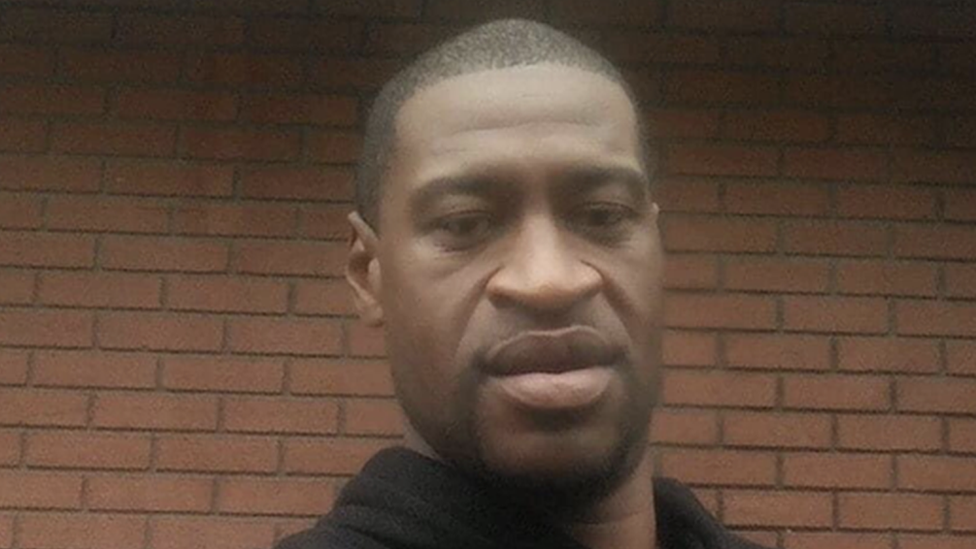Coronavirus: Covid-19 concerns raised over George Floyd protest
- Published
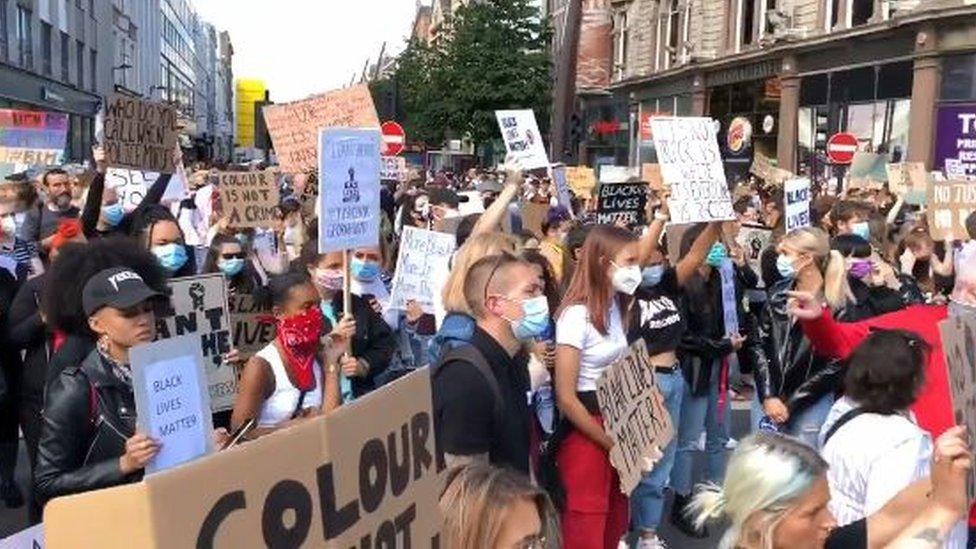
A large crowd protested in Belfast on Wednesday over the death of US man George Floyd
People who take part in street protests are putting themselves and others "at risk" from Covid-19, the Public Health Agency (PHA) has warned.
PSNI Chief Constable Simon Byrne also said such protests will "endanger lives".
Dr Gerry Waldron, from the PHA, made the comments over a Belfast protest in response to the death of African-American George Floyd in the US.
The PSNI estimated between 1,500 and 2,000 people were at Wednesday's rally.
According to the organisers, the aim of the demonstration was to "demand justice against racial discrimination".
But Dr Waldron, the PHA's head of health protection, said coronavirus "hasn't got any conscience and... doesn't recognise good causes".
He was speaking on the BBC's Good Morning Ulster programme after the PHA issued a warning about public "complacency" over the current risk of Covid-19.
"Unfortunately, people that congregate in large groups, even if they're trying to maintain social distancing, put themselves and others in that group at risk," he said.
"We are in very, very changed times now and we've got to keep remembering that."
Speaking on Thursday, the chief constable defended how police handled the rally and said more people attended than expected.
Mr Byrne said the organisers of the protest were also surprised at the size of the crowd.
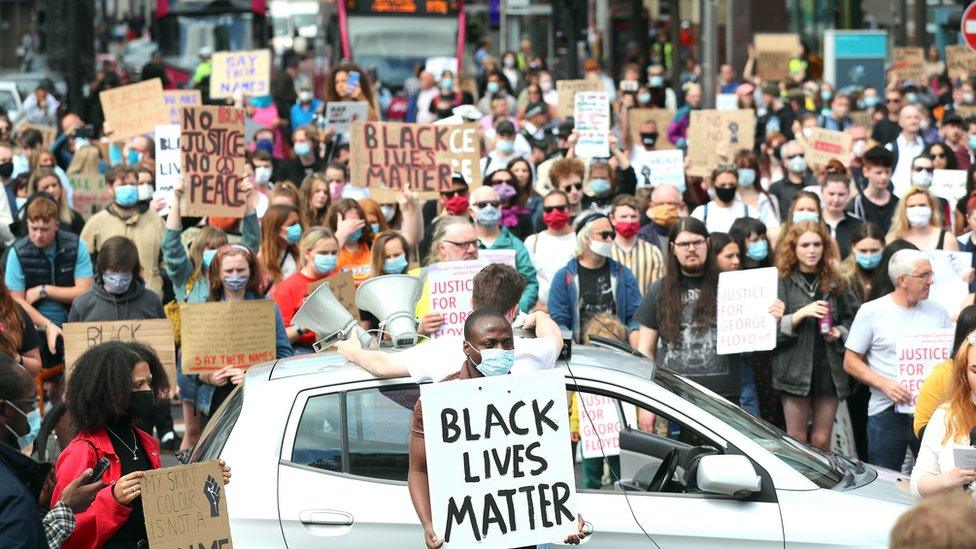
Many of the demonstrators were wearing face masks
The chief constable said the policing of yesterday's rally was "proportionate" and the police had to "as ever, balance a number of competing considerations".
In a direct message to demonstrators, he said: "If you need to protest... do that responsibly."
In an earlier post on social media, Mr Byrne said he was "appalled at actions of the former officers from Minneapolis PD", however, he added "public protests at this time will endanger lives" due to the risk from coronavirus.
"We must support Black Lives Matter, but also stop the spread of Covid-19," he continued.
The death of Mr Floyd initially sparked protests in the US but they have since spread to the UK and Ireland.
Demonstrations began after a video of his arrest in Minneapolis was shared online, showing a white police officer continuing to kneel on his neck even after he pleaded that he could not breath.
Four police officers were sacked following his death, and all four are facing charges.
One of the organisers of the Belfast protest, Jolene Francis, said on Wednesday that while social distancing was important, she believed there was a "social responsibility to show our solidarity and demand justice against racial discrimination".
Ms Francis told BBC News NI on Thursday that she regrets that "we were not able to enforce social distancing more, but I am insanely proud of the efforts that were made".
"To be honest I was expecting to wake up to reaction like this, we're never going to be able to please everybody," she said.
"We're not a business, we don't have funding… but we bought masks, we bought sanitiser and we handed them out. We encouraged people to social distance."
She said that the demonstration was "emotionally charged" and it was difficult for young people to express their anger while maintaining social distancing in the very centre of the protest.
However, she said this only happened in the "epicentre" of the crowd, as people on the perimeter of the protest followed social distancing guidelines.
She added that some of the people who were pictured standing close together had "already arrived in groups".
'Big danger'
Dr Waldron also told Good Morning Ulster he was concerned about large groups of people gathering at beauty spots in Northern Ireland.
It follows complaints about crowds in Crawfordsburn, County Down, on Monday, when a crowd of about 200 people gathered in the small coastal village on the hottest day of the year so far.
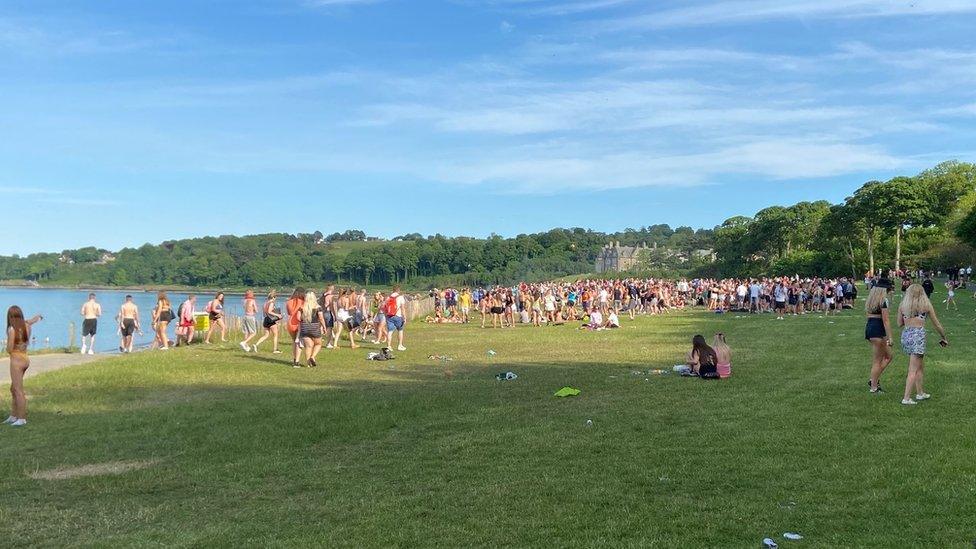
Crawfordsburn residents complained about crowding and anti-social behaviour
"Pictures don't necessarily paint the scene for what's actually happening," Dr Waldron said.
But he added that "when you see crowds you ask yourself: 'how can it be possible to maintain social distancing when in that kind of situation, even with the best in will in the world?'
"So, that's why we're saying complacency is a big danger now as we're moving out of lockdown, as the restrictions are being eased."
- Published3 June 2020
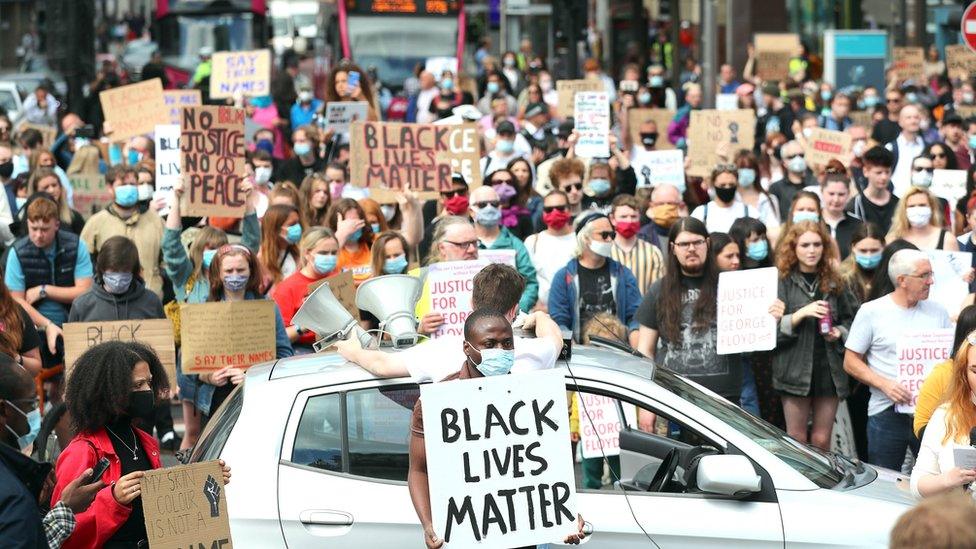
- Published2 June 2020
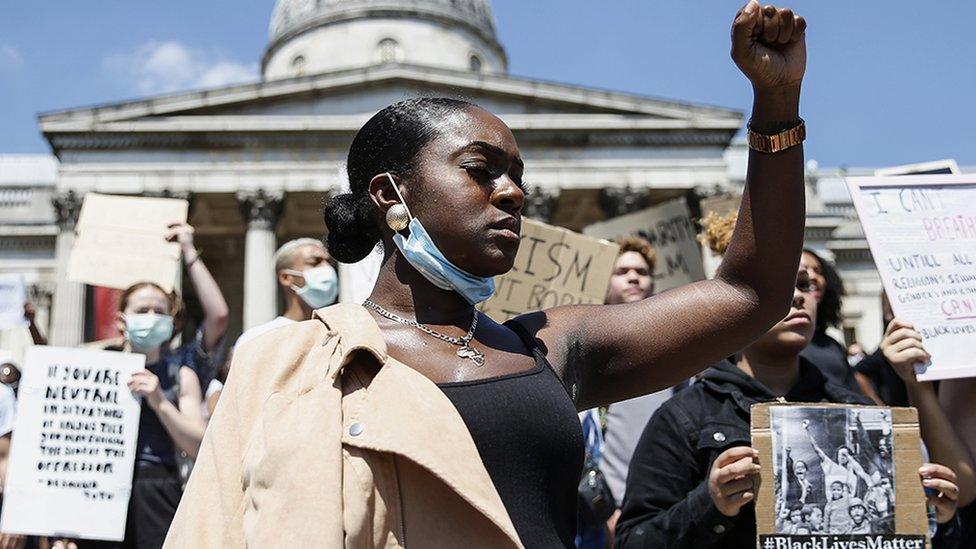
- Published16 July 2020
